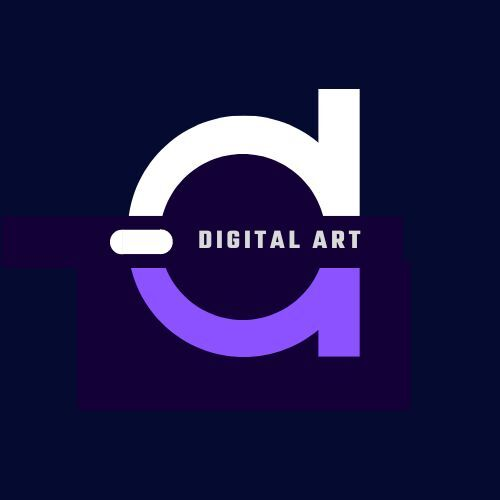Partnerships for Cooperation
Cooperation partnerships in higher education
DIGARTED
Digital Art Courses in Higher Education Institutions
DIGIARTED WEBSITE: http://www.digarted.eu/
Objectives
– Develop and make available Educational and Knowledge Resources on integrating digital art elements into the teaching practices of Art Schools.
– Provide training opportunities for arts academics in innovative digital art elements and trans-disciplinary approaches to expand their capacity with curricula design, delivery and assessment at the intersection of arts & technology.
– Provide opportunities for arts students to develop digital skills and competences
– Promote the lifelong learning dimension of art schools by facilitating the uptake of digital art short-duration learning courses leading to micro-credentials.
Activities
With regards to project results and in particular for developing Project Result 1: Training Module for art educators on Digital Arts, the following activities will be undertaken: needs assessment, establishing learning objectives, structure definition, training, materials and evaluation.
For developing Project Result 2: Pedagogical Framework (Curriculum) on Digital Arts for one core and one elective digital art course, the following activities will be undertaken: planning, research, content & methods and materials & tools.
For developing Project Result 3: Curriculum for a short-duration learning course on the basics of digital art leading to micro-credentials, the following activities will be undertaken: research & planning; course design & micro credentials and peer review & evaluation.
Also, other project activities will relate to project management in terms of progress and quality monitoring, project meetings, multiplier events, as well as, activities designed to serve dissemination, communication and exploitation purposes.
Expected results
Training Module for art educators on Digital Arts
A Training Module addressed to teachers to provide them with knowledge, skills and approaches on digital art. The goal of the training is for the teachers to develop competences and understanding on how to integrate digital elements in their traditional analogue art curricula.
Pedagogical Framework (Curriculum) on Digital Arts for one core and one elective digital art course
A Pedagogical Framework (Curriculum) including pedagogical tools, methods and resource materials for teachers for the incorporation of digital art courses in higher school education art programmes. The framework will be designed so as to support teachers in the delivery of high-quality learning and teaching based on best practice research and relate it to the most effective way that students learn.
Project results: http://www.digarted.eu/project-results/
Partners
The University of Humanities and Economics in Lodz (coordinator)
DigitAI
The Art Academy of Latvia
Center for Technology, Research & Innovation CETRI
Artit Athens Ltd.
The University of Arts in Belgrade (UAB)
The Technical University of Kosice
Strategic Partnerships
Sharing subaltern knowledge through international cultural collaborations
SHAKIN’
2020-1-FR01-KA203-080017
Cooperation for innovation and the exchange of good practices
Strategic Partnerships in Higher Education
SHAKIN’ is supported by six partners from four countries (France, Germany, Serbia, Sweden), with three universities and three cultural organisations, all of them being internationally recognised in their domain of activity. They join their expertise to address crucial contemporary challenges affecting European culture fields by finding new ways to think, work and collaborate, in order to provide students with an adequate professional ethos for the jobs of tomorrow. Market logic, populist policies, migrations and globalisation, ecological transition or digital technologies affected the contexts of culture management, policy, research, and teaching in various tectonic ways over the last decades. But teaching and training in culture fields have largely maintained narrowly professional, nation-based assumptions of culture, politics, participation and education. As a result, learning processes are not just ill-fitting to provide relevant knowledge and well-equipped professionals but are insensitive to excluded, marginalised and oppressed voices and life experiences of today.
Objectives
![]() Connecting academic and subaltern knowledge through sharing research methodologies in innovative forms of thinking, learning and teaching;
Connecting academic and subaltern knowledge through sharing research methodologies in innovative forms of thinking, learning and teaching;
![]() Professionalising (post-graduate) students with new forms of cultural consciousness, nurtured by theoretical tools and endorsed by practical skills;
Professionalising (post-graduate) students with new forms of cultural consciousness, nurtured by theoretical tools and endorsed by practical skills;
![]() Supporting international cooperation through projects including subaltern perspectives.
Supporting international cooperation through projects including subaltern perspectives.
Outcomes
![]() Digital handbook Searching from the subaltern, which collects and displays research methodologies for subaltern knowledge;
Digital handbook Searching from the subaltern, which collects and displays research methodologies for subaltern knowledge;
![]() Toolbox Diversifying learning environments, gathering innovative tools for learning and teaching;
Toolbox Diversifying learning environments, gathering innovative tools for learning and teaching;
![]() A platform for international cultural project implementation, proposing skills prescriptions and tools, mentoring about intercultural professional experiences and advocating for new professional ethos in culture fields;
A platform for international cultural project implementation, proposing skills prescriptions and tools, mentoring about intercultural professional experiences and advocating for new professional ethos in culture fields;
![]() Curriculum Subaltern knowledge for international cultural project management, articulating the other results of the project in a short-term educational programme.
Curriculum Subaltern knowledge for international cultural project management, articulating the other results of the project in a short-term educational programme.
Partners
Coordinator University Lyon2
University of Art in Belgrade, Bauhaus University in Weimar, Stockholm Museum of Women’s History, Independent Culture Scene of Serbia, le LABA.


